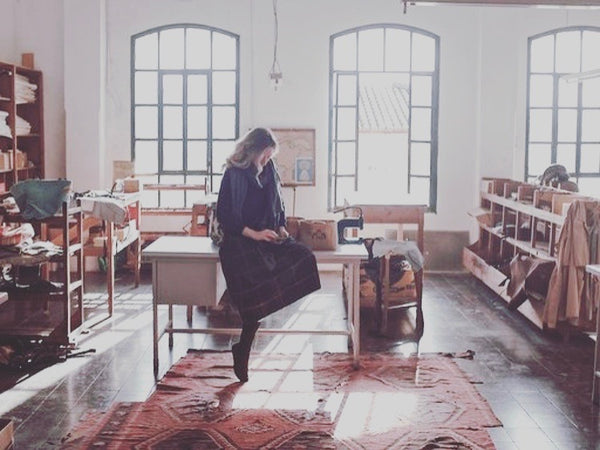Posted on March 14 2023

The ongoing female-led revolution in Iran has captured the attention of the world, as Iranians bravely stand up to the brutal regime of the IRGC terrorists, in their fight for basic human rights, freedom and democracy.
The international community has been inspired by the immense bravery and resilience of the Iranian women, and many organizations are working hard to support them.
At Reclaim, we are proud to be a part of this effort through our RECLAIM IRAN limited-edition collection, which has been created to help raise awareness and funds in support of Iran’s brave protestors.
The situation in Iran is complex. The revolution for freedom is facing off against an unrelenting dictatorship that is using violence to suppress dissent and maintain its grip on power. In the face of this extreme violence and death, the determined and brave Iranians continue to stand up for their rights and demand the freedom and dignity that they deserve.

The world MUST stand with the Iranian people in their fight for justice, our goal with the RECLAIM IRAN collection is to help raise their voices and support their freedom.
A History in Textiles
Iran has a rich and vibrant history in the highest quality of textiles, that stretches back over six thousand years. For centuries, textiles have been an important part of Iranian culture, serving not only as a source of clothing but also as a form of artistic expression. The textiles of Iran have been highly sought after, renowned for their intricate designs, rich colors, and luxurious fabrics.
Historically, textiles in Iran were hand-woven using traditional techniques passed down from generation to generation. The fabrics were made from natural fibers like silk, cotton, and wool, and were dyed using natural pigments made from plants and minerals. The intricate designs and patterns found on these textiles reflected the culture, history, and beliefs of the people who created them, making each piece truly unique.

In the early 20th century, Iran was at the forefront of the fashion world, with its textiles and clothing coveted by people all over the world. The styles and designs of the time were influenced by the art, literature, and architecture of the region, as well as the trends and styles of Europe and the Middle East.
In the 1960s and 1970s, Iran was undergoing rapid change, and this was reflected in the fashion of the time. Women began to push the boundaries of traditional dress, opting for lighter, more form-fitting clothing, and incorporating more Western styles into their wardrobes. Men also began to experiment with new looks, incorporating more casual and relaxed styles into their daily attire. These changes were driven by the increasing influence of Western culture, as well as a growing sense of national pride and a desire to express individuality.

When the Islamic Republic of Iran rose to power after the Iranian Revolution in 1979, they began issuing strict guidelines and enforcing restrictions on dress codes, especially for women. The Islamic modesty code passed in 1984 made the hijab compulsory, one of many clothing mandates to arise in that time.
However, in recent years, women have been using subtle fashion statements to make big waves around the world. They have created global awareness by protesting against the hijab law by showing part of their hair or wearing a white headscarf, which was turned into a protest symbol by artist and activist Vida Movahed. In 2017, Movahed took off her white headscarf and put it on the end of a stick. She then waved it around from a utility box on the busy street of Enghelab Street (Revolution Street) in the center of Iran’s capital, Tehran.
This sparked a movement around the world, which has been reignited today in the wake of the murder of Mahsa Amini. Amini was arrested for breaking the hijab law by the controversial Morality Police in September 2022, later dying in their custody under suspicious circumstances. This sparked a wave of protests across Iran and the world, led by women who would no longer accept to be silenced.
A Sustainable Mindset
Reclaim is fully committed to making a positive impact in the world, and we are proud to be able to support the women of Iran who are fighting for their freedom.
To us, “sustainability” means more than just the materials we use, or the footprint of our production. To support a truly sustainable world, people, planet and species must ALL have the means to thrive in harmony with each other.
The special edition RECLAIM IRAN Petra Pouch is made with antique Iranian textiles and is a unique blend of tradition and modernity. The intricate patterns and rich colors of the textiles tell the story of a proud and resilient people, while the sleek and stylish design of the pouch speaks to the forward-thinking spirit of the protesters.

100% of the profits from the sale of this limited edition collection will be donated to the Norooz Foundation, an organization working directly with the protesters in Iran. This organization provides critical support in the form of medical care, legal representation, and information dissemination. By supporting this organization, we are not only helping to protect the safety of the protesters, but also supporting their fight for freedom and democracy.
Now more than ever we MUST raise the voices of the brave Iranian women battling for basic human rights. Innocent women and children are being persecuted and terrorized by monsters. We MUST remember that Iran is a country with a rich cultural history, and a nation whose contribution to luxury textiles dates back over 6000 years. We MUST NOT let the current horrendous 40-year blip define this great nation.

Join us in raising awareness and support for the brave protesters in Iran.


0 comments